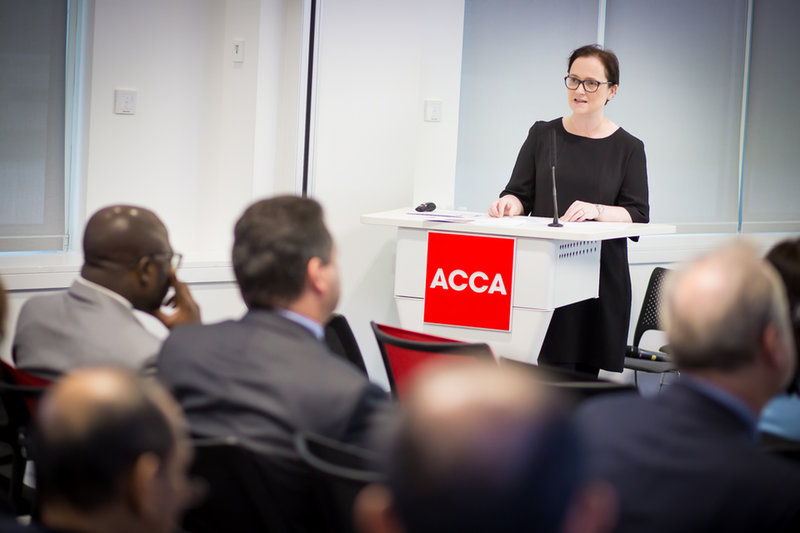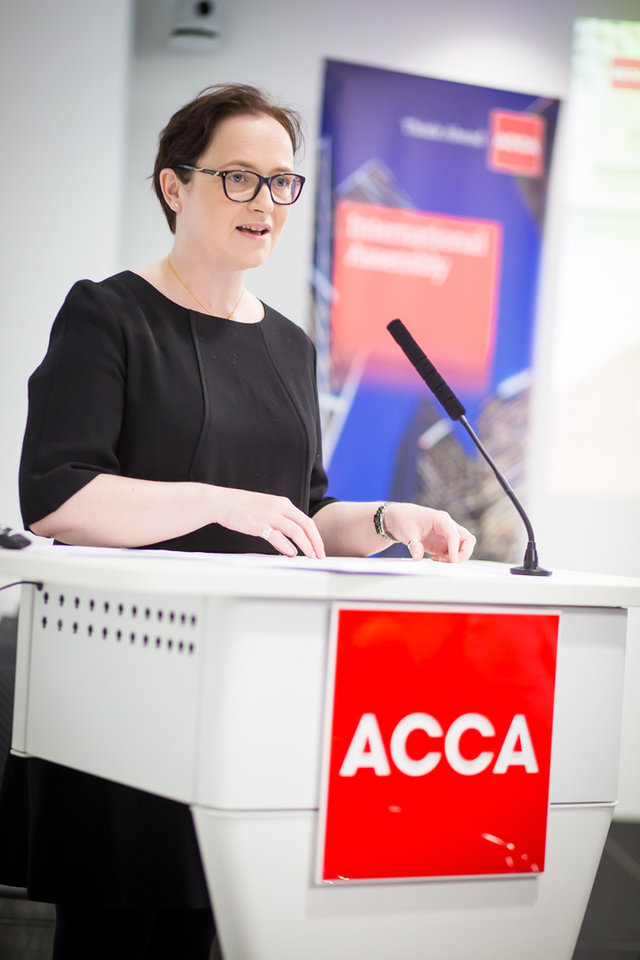Professional Development
Recognition of the profession and ACCA’s collaborative approach
Maggie McGhee, executive director governance explains what recognition means for ACCA, its members and the accountancy profession

B
eing recognised for your professional capabilities is a core aspect of any qualification, none more so than for those who have worked hard to gain the ACCA Qualification.
This is one of the central attractions of the qualification – professional accountants look to ACCA for a qualification that is well known and highly respected around the world. Whether in business, practice, public or voluntary sectors, the ACCA Qualification is recognised as a true indicator of professional ability and skills, governed by the highest standards of professionalism and ethics.
Maggie McGhee, Executive Director, governance, ACCA
One of the guiding principles of ACCA, as a professional body, is to maintain and enhance this level of recognition, both formally and informally. The sum of this recognition protects ACCA’s license to operate, supports members’ access to regulated roles and maintains the qualification’s value with employers.
As a result of this, it is not surprising that one of ACCA’s priorities is to focus on enhancing its market recognition. Such recognition matters – it can boost the reputation of qualified members, enhance their opportunities and strengthen ACCA’s core brand values.
Informal recognition
At an informal level, ACCA continues to invest to ensure market awareness of the qualification around the world: what it means to employers, regulators, governments and finance professionals. ACCA builds strong relationships across the professional accountancy network to ensure the ACCA Qualification remains relevant to employer and market needs. ACCA also runs public affairs campaigns that talk to regulators and legislators, as well as public awareness initiatives to ensure a wider understanding of the value of the qualification.
Throughout these activities, ACCA collaborates to promote cooperation with national accountancy bodies – the qualification is seen very much as complementary to existing national qualifications, and ACCA will adopt a partnership approach with the national accountancy and regulatory bodies to jointly meet the needs of the profession and society more generally. This supports ACCA’s ethos of inclusivity and widening access to the profession; by offering a variety of options towards becoming professional accountants, ACCA is playing its part in helping diversity within organisations which, in turn, helps to improve their performance and drive standards within the profession.

Maggie McGhee, Executive Director, governance, ACCA. Credit: ACCA
This serves to underline the importance of the profession in helping to build strong and sustainable economies around the world, an aspect that has been thrown into sharp focus by the ongoing social and economic crisis driven by the Covid-19 pandemic. Through lobbying for recognition, as well as developing the profession at a grass-roots level, ACCA can play its part in creating sustainable recovery.
Formal recognition
While formal recognition is not always a pre-requisite to be offered in a particular market, ACCA remains committed to establishing and maintaining formal recognition of its qualification where there is member demand to do so. This can be established through a range of possible options: partnership and collaboration agreements, advocating for legislation that supports proportionate regulation and an open profession or actively applying to be recognised following an established accreditation process in the financial and/or education sector. This allows access to regulated roles or alignment of the standard of the ACCA Qualification to a national qualification framework respectively.
Through these and other activities, ACCA has been able to establish wide recognition among employers of the qualification, and this often means that securing formal recognition in new markets is not required.
But there are areas where formal recognition is needed. Professional accountants in regulated roles, such as audit, will require formal recognition of their qualification. ACCA leverages partnerships and established formal recognition to maximise the opportunities available to members and support their access to such roles.
Currently, the ACCA Qualification is formally recognised in many jurisdictions worldwide. In markets where formal recognition is secured in the financial sector, ACCA members can use this to access signing rights, work in public practice or regulated roles, as well as become members of the relevant national bodies. Even so, ACCA members may need to demonstrate practical experience specific to each country in which they wish to work or meet additional examination requirements, most commonly in national law and tax. Formal recognition in the education sector can provide public assurance of the robustness and educational standard of the ACCA qualification at master’s degree level. This is increasingly important in markets where employers need official assurance from their national education regulator of a qualification’s national benchmarking in order to recruit staff or employees; and, make remuneration decisions based on an employee’s qualification level.
Looking more widely, another way in which ACCA provides recognition opportunities for members is through the development of joint examination scheme partnerships. There are currently 15 such partnerships where ACCA works with a national accountancy body to provide globally accepted qualifications, with local recognition and relevance. Under these partnerships, students register with both ACCA and the national body partner to satisfy the exam criteria for membership of both simultaneously.

Maggie McGhee, Executive Director, governance, ACCA. Credit: ACCA
Evolving demands
The professional recognition landscape is, of course, one of continual change. For example, the UK’s departure from the European Union, which came into effect on 1 January 2021, highlights the importance of professional qualification recognition. While there is no longer a mutual recognition system between the UK and EEA for the recognition of professional qualifications of regulated professionals wishing to move countries, the ACCA Qualification will continue to be relevant to the regulatory regime for statutory audit and accountancy in the EU and the UK.
ACCA has pledged to work with EU and UK governments bodies and regulators to ensure current and future mutual recognition agreements are established with the best interest of its members and the profession at heart.
Indeed, because of ACCA’s work to gain formal recognition in many of our markets around the world, the ACCA Qualification will continue to be recognised nationally within the UK and Ireland for statutory audit as well as in several European Economic Area (EEA) states. It will also continue to be recognised nationally within a number of EEA states for access to regulated accountancy roles and recognised at Level 7 (masters degree level) on both the UK and European qualification frameworks.
For further information on this, please visit our Brexit Hub here: www.accaglobal.com/gb/en/campaign/brexit.html
ACCA promotes an approach to the recognition of accountancy qualifications that safeguards quality of the national profession and protects public value. Key attributes of such an approach are:
- Fairness and transparency
- Progressively inclusive
- Facilitate professional mobility
- Supportive of the wider national skills and talent objective
- Develops partner opportunities between professional bodies